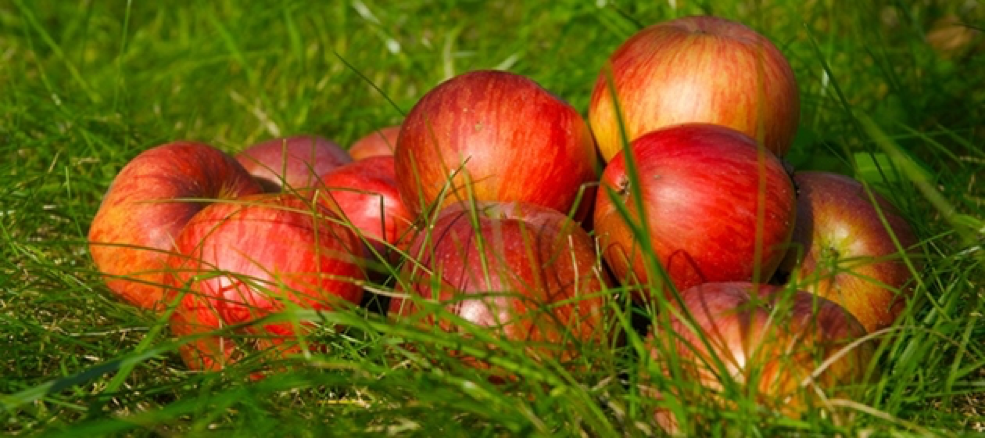
What's on your plate? An essential guide to nutrition
March 29, 2018
Topics:
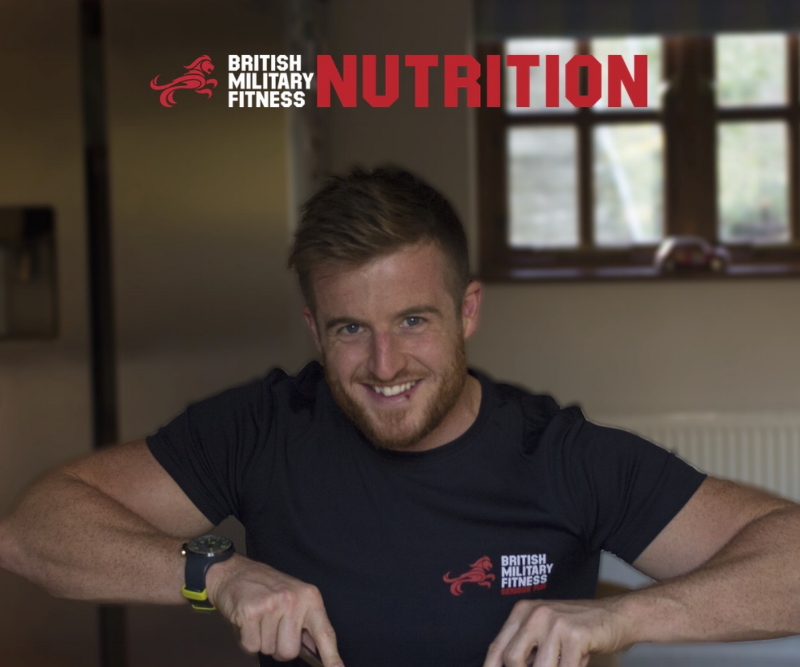
Good fitness is holistic. It's not good enough to 'just run', you need to understand what you're putting into your body, too. In this essential guide, we outline why nutrition is critical to fitness success and what you need to be eating to see the results you want.
Immerse yourself in 12 online instructional videos, education and motivation from industry expert Ben Coomber. You will learn more about your body, health, your goals, and how to change, all from the comfort of your home. So get ready to start with our nutrition education programme.
Table of contents
- What is BMF nutrition?
- Ben's top nutrition tips
- Getting the best body shape
- Get nutritional recipes from our fit food recipe book
- What is nutrition part 1: Calories, what are they?
- What is nutrition part 2: The next level - macronutrients and fibre
- What is nutrition part 3: Micronutrients, timing and supplements
- How to eat healthily
- Nutritional advice for the vegan or vegetarian boot camper
- Training tips for those with diabetes
- What food and drink should I avoid?
- What supplements should I be taking?
- Gut health - the missing link
What is BMF nutrition?
BMF Nutrition is all about you achieving your goals. Let BMF nutritionist Ben Coomber take you on a journey to help you lose fat, improve your health, performance and recovery, and above all teach you these life skills so you never have to diet again, and these results last forever.
Ben’s top nutrition tips
Wholefoods first
Ideally the vast majority of your intake should be made up of things that could be bought without being packaged (fruits, vegetables, meats, dairy and grains).
Drink lots of water
For every kg of body weight drink 30ml of water, so a 90kg man will need 2.7L of water a day. Add 0.5-1.0L for every hour of exercise depending on its intensity.
Get enough sleep
Between 10pm to 6am is the ideal time. If you struggle with sleep magnesium is a good relaxant, or else have an Epsom salt bath before bed in warm, not hot water.
Preparation is key
Prepare food at breakfast, the night before or at the weekend, ensuring you have the best healthy food available to you when you need it.
Follow the 90/10 rule
Follow the 90/10 rule: If you’re eating right 90 percent of the time, your body can handle the other 10% and still maintain optimal body composition.
Getting the best body shape
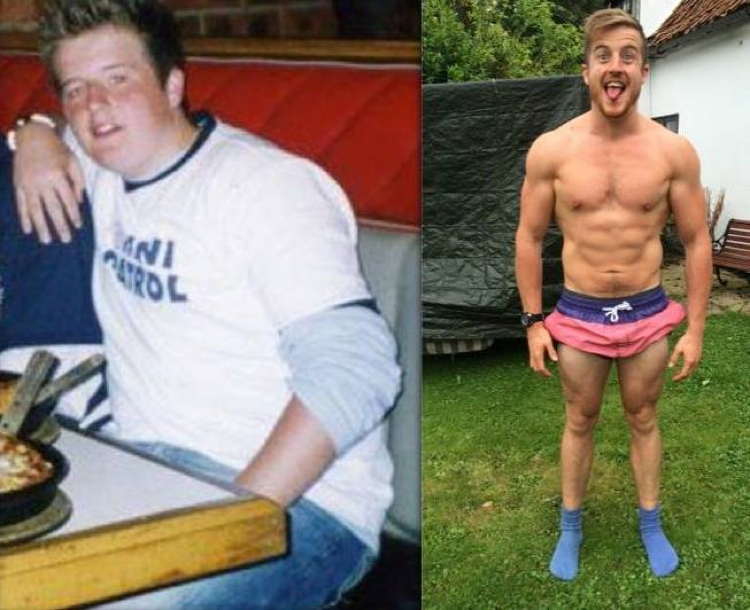
Because I was once 16 stone and obese.
I’m BMF Nutritionist Ben Coomber, and I am a true geek for everything nutrition, health and human performance. This all stems from my personal journey into the fitness industry.
Becoming fit and healthy was far from easy, and it was this challenge that inspired me to teach others once I had conquered my own demons.
As well as being overweight, I had irritable bowel syndrome, ADHD, Eczema, low energy, poor concentration, slept badly and had awful posture due to lazy habits as a teenager.
I struggled to lose weight for too long because I was reading the typical diet advice you get on the internet. It wasn’t until I got back to basics, ate a diet super rich in healthy foods, removed foods that exacerbated my symptoms, started to do some form of resistance training with my cardiovascular training, optimised my sleep, and found balance, that the weight then fell off.
I lost 4 stone in 4 months, losing the remaining 1.5 stone over the following months.
A Personal Trainer and Nutritionist
Why did I go on this journey at all? At the time, I felt my career and life depended on it. I didn’t want to feel low in energy anymore. I didn’t want to be overweight. I wanted to feel fitter and more alive, and this for me was enough to spur action - to optimise all areas of my life, to thrive.
My experience has enabled me to learn an awful lot about the human body over the last 10 years. After my initial weight loss, I decide to train as a personal trainer and nutritionist. Now I’ve helping thousands of others achieve their goals. Over the years, I specialised in nutrition and focussed my degree on this subject, using BMF participants in my final dissertation study which compared the effectiveness of diets on weight loss and health. I then studied with the International Society of Sports Nutrition, and ever since I have lived and breathed all things nutrition and optimal physical and mental performance.
These days I spend most of my time teaching people how to live better lives and achieve their goals through all the books I write, the blogs and videos I curate, my ramblings on social media, and of course here through the BMF Nutrition Hub.
I also spend a large chunk of my time educating personal trainers and coaches on how to be AWESOME Nutrition Coaches themselves via the Body Type Nutrition Academy – our online nutrition course, while innovating and teaching people about supplements at Awesome Supplements. I also have the UK’s #1 rated podcast - Ben Coomber Radio.
Health is a massive issue for us all. Knowing how much of a struggle losing weight can be, as well as how tough it is to become fitter and more athletic, combined with my qualifications in nutrition and health, I am confident that I can help you on your own journey.
After all, mastering your own health and body is vital. We only get one body in this life, and it deserves to be the best - to feel the best, to look the best, and to perform the best.
Get nutritional recipes from our fit food recipe book
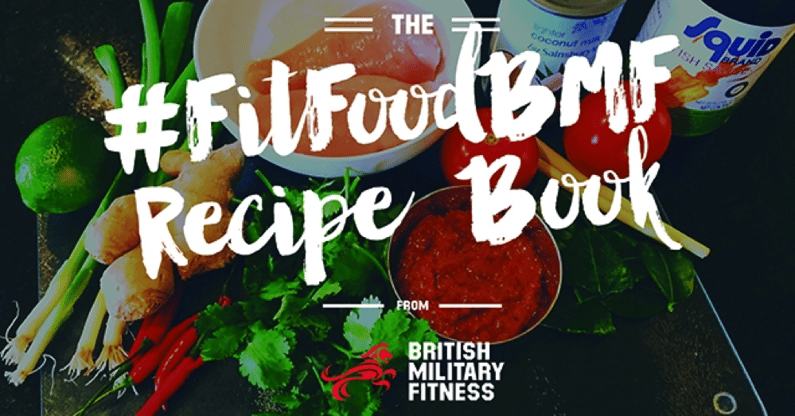
Eat clean thanks to top UK health bloggers with our fit food recipe book, available through our health and fat loss PRogramme.
At British Military Fitness, we believe healthy living and looking good isn’t a result of a mad diet, it’s about eating well as part of your everyday life.
That’s easy to say, we know. But now we’ve made it easy to do as well. We called on 24 of the UK’s best food and fitness bloggers to help us put together our downloadable Fit Food Recipe e-Book. Each of them has shared a favourite recipe that can help you toward your fitness goals, improve your overall wellbeing, and tastes great to boot.
If you struggle to eat well during breakfast, lunch, or dinner, this blogger-approved Fit Food Recipe Book as part of our 12-week Fat loss and nutrition programme has you covered. There are even several sin-free snack ideas to keep you eating clean when your willpower is waning between meals.
Influential fitness bloggers such as Fitcetera’s Georgina and Stefanie of StefanieGrace.com have taken part along with other well-respected food and health writers. Cate of Cate In The Kitchen, who gave a breakfast recipe, has her site shortlisted in the Cosmopolitan’s Blog Awards 2015. And in between working with Sports Aid and offering expert nutrition advice via BBC News 24 and The Guardian, Jenny of Lunchbox Doctor contributed a delicious snack idea we know you’ll just love.
Whether you’re looking for high protein, low sugar, or reduced carb, it’s all here. Think light bites like salted caramel popcorn bars and hearty-meets-healthy evening meals such as slow-cooked lamb with pomegranate quinoa.
The best bit? Because you can start your BMF nutrition programme right now, you’ll be able to immediately produce meals that do you good and assist your body goals. You can read it on a tablet or phone too, so it’s super simple to take into the kitchen with you when you fancy cooking up a healthy storm.
Should you pair the book with an exercise regime, such as several British Military Fitness sessions, don’t be surprised if you drop a jeans size or two. Good health, good food, one book.
What is nutrition part 1: Calories, what are they?
Nutrition, according to the World Health Organisation, is defined as "the intake of food, considered in relation to the body's dietary needs. Good nutrition – an adequate, well balanced diet combined with regular physical activity – is a cornerstone of good health."
What does nutrition mean and why is it important?
Nutrition is, in essence, the word we use to describe the food and drink that we consume, in terms of the nutrients therein, and the effects which we wish it to have on our body and mind. Nutrition is the single most important factor in optimising your performance in boot camp and the health or body composition changes you wish to see in yourself.
By managing our nutrition, what we eat and drink, we can therefore manage how we feel, how we perform in training or competition situations, and what we look like as a result of what we do (after all, we all want to look good naked, right?)
Nutrition can directly change your risk of disease, ailment, age-related ill health and performance in mental or physical tasks, this means that getting it right should be considered paramount. Nutrition is literally the cornerstone to everything that you do, it’s the fuel that charges your brain, your body… just everything!
Of course, that’s all well and good, but how do we look at nutrition, and how do we know we are on the right track?
Those are the two questions I want to answer in this series of articles. By the end of it you should be in a great place to read the rest of the content on this site as you’ll have a solid background understanding of what we are talking about.
Firstly, how should you start to look at your nutrition?
Whilst this article will help you a lot and I urge you to read it, those of you who are taking the first steps on your fitness and health journey should check out Nutrition Advice for Beginners first. This will educate you on getting a handle on your own nutrition, and starting to improve your health and results straight away.
Nutrition should be viewed in a hierarchy of importance. The subject itself can be very complex and confusing, and a lot of information is available to us which is either misleading or simply not useful, meaning that figuring out what is relevant can be a real headache. For this, I like to use the following diagram originally suggested by Eric Helms, of 3DMJ fitness coaching, which shows us the order we should look at things when trying to optimise performance in training or exercise and body composition*:
*More on this in a moment.
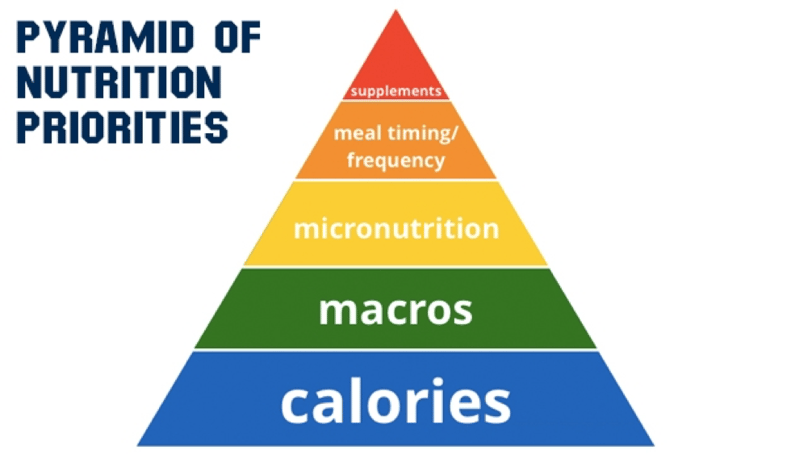
Let’s look at each level in turn, explaining what they mean, how to know you are on the right track, and why they appear where they do on the hierarchy.
Calories
Calories are a unit of measure for energy, like Kilowatt hours which appear on your electricity bill. The term ‘calories’ when used to talk about food is actually incorrect, as the unit of measure we use to measure food energy is kilocalories, shortened to ‘kcal’ on food packages, which is actually 1000 calories. We use the two terms interchangeably when talking, and I will do so here, but for the sake of completeness I wanted to include this little disclaimer.
1kcal is equal to around 4000 joules (4186.8 to be exact) and is the amount of energy needed to raise the temperature of a litre of water by 1 degree Celsius. The human body requires calories to live, breathe, walk around, run, jump, speak, play Twister and read fitness articles. Without energy, our body will very quickly shut down.
Because calories are found in the food and drink that we consume, almost entirely (unless you are on a glucose drip for example) it’s important to consume the correct amount of food for your goals, which is dependent on your body and genetics.
Without eating sufficient calories your performance in boot camp will be directly impaired, meaning that your fitness progress will eventually stagnate or even regress; but more than this your body will not have enough energy to allow you to do other daily things. Your brain will run more slowly which makes it hard to focus at work or study, you will feel lethargic and ‘bogged down’ with heavy legs when walking around, and you might find it difficult to stay awake for a full day. A final issue with dramatically under eating is that hormonal functions will start to take a dive which will effect your mood, your body composition and even your libido.
Overeating on the other hand, even if the foods you consume are of the ‘healthy’ kind, will eventually make you fat. No ifs, ands or buts.
So…How many calories do we need?
There are a number of different calorie calculators which can be found online which will use a few different formulas to work out an estimate of your calorie needs. Click here for the one I personally use when starting with a new client.
Use this to work out your needs both on days you don’t do BMF / Bootcamp, and days you do. Bootcamp will be both intense and moderate exercise, so to play it safe I’d add this time to the moderate block
Eating this many calories on the requisite days should allow you to maintain your current weight; try it for 2-3 weeks and see what happens. It will almost certainly be too high or low (estimates always are) so remember this and ALWAYS adjust what you are doing depending on real-world results.
Once you have found the rough amount of calories needed to maintain your weight, add or subtract 5-10% of your total amount of daily calories to gain or lose weight. So if you are eating 2500 Kcal and you are maintaining your weight, but wanted to lose weight, subtract another 5% of those calories, so you then eat 2375 for a week, and see if that makes you lose weight. If not drop it again another 5% until you start getting a consistent weight loss of 1-2lbs per week.
Now onto Nutrition Part 2, where we discuss where these calories come from, and the different things that foods do for us….
What is nutrition part 2: The next level – macronutrients and fibre
As discussed in Nutrition Part 1, nutrition can be viewed in terms of a hierarchy of importance. I talked about calories and how the balance between in and out will dictate weight loss and weight gain, but then I hinted that there might be more to it. Some of that will be explained here as we delve into the next level of the pyramid, macros.
Macronutrients
‘Macronutrients’ is a collective term for the nutrients found in food that are needed in the largest (macro) amount. We actually measure them in grams. You may or may not have heard this word before, but you are probably familiar with the terms protein, carbohydrates (often shortened to carbs) and fat.
These are complex bundles of molecules that are found in all foods in varying amounts, and each one does something different when put them in the body. They all have an energy value, meaning that it is the macronutrients in the foods we eat which contain the calories mentioned above. Protein and carbs both contain 4 kcals per gram, whilst fat contains 9. This means, simply, that a food which contains 10 grams of fat, 20 grams of protein and 50 grams of carbs will have 370 kcals, as worked out like so:
- 10g fat – 10x9=90. 90 kcal
- 20g protein – 20x4=80. 80kcal
- 50g carbs – 50x4=200. 200kcal
- 90+80+200 = 370kcals.
Fortunately for us, this is all detailed on food packages, and we can even use various mobile phone apps to do it for us, so no maths is actually required.
So, that’s where calories come from. But I mentioned above that these macro’s all do different things in the body, and that means we need to look at them a little closer in order to determine what we should do with them. I’ll start with protein, as it is the most important one for achieving optimal performance, health and body composition.
Protein is made up of chains of molecules called amino acids. There are 20 amino acids in total, 9 of which are ‘essential’ meaning that we need to get them via food, as our body can’t make them out of other things. You don’t really need to know a lot more about amino acids for now other than the fact that all 9 amino acids that are essential are found in foods such as meats, fish, poultry, eggs, dairy, the grain quinoa, and soybeans, but are also found in different ratios in beans, wholegrains and some seeds which must be combined to make ‘complete proteins’. To read more about this, check out the article on vegan and vegetarian eating to learn more about food combining.
We consider protein to be the most important macronutrient when calculating your nutritional needs because we cannot really store it in the body other than in muscle tissue, contrast that to carbohydrates and fat which can be stored for later use. If you do not consume enough protein for your daily needs, your body will start to break down muscle tissue to get it. And this is bad.
Protein is not just used to build muscle, though. Oh no! It’s used for muscle repair too. When we exercise we cause small amounts of trauma to the fibres that make up our muscle tissue, and this needs to be repaired before we can use the muscle again properly. Dietary protein is used for this function, meaning that taking your diet from protein insufficiency to protein sufficiency will improve your recovery rate and enable you to train harder, boot camp to boot camp!
Put simply, if you don’t eat enough protein, when you lose weight it will of course come from fat stores but also from muscle stores, meaning that you risk looking worse, feeling worse, and slowing down your metabolic rate*.
*Metabolic rate is the speed at which you burn calories in any given day. Muscle weight burns more calories than fat weight when you move about because it has to work hard just to stay active and alive. This means that if you lose muscle, it gets harder and harder not to put fat back on.
How much of each food group is enough?
Protein needs
The general public tend to get too little, whilst the training community almost always get too much. The latest figures we have for maximising the effects of protein consumption are 2.3-3.2grams of protein per kilogram of lean body mass (2). But the leaner you are, and the lower your calorie target is in relation to your overall needs, the more protein you need too. The number I tend to go with is 1.6-2 grams per kilogram of bodyweight, unless you are very overweight, in which case I would use 1.6-2 grams per kilogram of your ideal bodyweight (which is how much you would weigh if you were a bit leaner, as large amounts of body fat don’t actually affect protein needs much if at all). Which end of that scale you fall at matters a lot if you want to build the most muscle possible, but if you’re just looking to get fitter and stronger, the lower end will be just fine.
When focusing meals around a protein source, it gets really easy to start to see the protein numbers add up. Plan your meals ahead of time to make sure you don’t have to play ‘catch up’ in the evening.
Fats, the other essential macronutrient
We need fats for hormonal production, cell membranes, skin moisture and fighting free radicals (the leftover bits that fly around our body after cells have used oxygen for energy. These free radicals cause damage to other cells and over time can affect our health).
Fat is broken down into different categories depending on molecular structure, you may be familiar with a few of them. Monounsaturated Fats found in nuts, nut butters, olive oil and avocados. These are universally recognised as ‘good fats’.
Polyunsaturated Fats found in grains and fatty fish. These fats include the Omega-3 fats, EPA and DHA which are the ‘good fats’ you get from fish oil. These get a special mention as numerous reports (3) suggest that consuming around 2-3 grams of these two combined per day can have profound health benefits. Read this article about supplements for more information.
Saturated Fats are a point of contention. They are found in meats, eggs, dairy and other animal sources, and were demonised a large amount in recent years due to being implicated in various health issues. Fortunately, data is now readily available which thoroughly debunks the idea that saturated fats are universally ‘bad’ and so long as they are consumed as part of a balanced diet they can even be beneficial! So, saturates from whole food sources are 100 percent on the menu.

Trans fats are found in trace amounts in animal products, which is fine, but they are also found in large amounts in some packaged, highly processed foods. These man made fats are created by hydrogenation of plant fats (you may see hydrogenated oil appear on a label) and can cause havoc to our health. They are best avoided, in there man made form, entirely if you can.
The first three fats mentioned above are all beneficial to our health and should be included in our diet in roughly equal measure. To accomplish this, simply eat a balanced and varied diet whilst considering supplementing fish oil if you do not eat oily fish on a regular basis.
How much should you eat? Dietary fat should make up around 30% of your total intake, so for someone who calculates that they need to eat 3000 calories, roughly 900 of those should be fat, so 100 grams or so. This isn’t a hard and fast rule though, and more or less fat may make you personally feel better, so experimentation is a good idea.
And carbs…
This brings me to carbs which are found in large amounts in potatoes, fruits, some veggies, grains or grain based products such as bread and pasta, and a lot of confectionary. Carbs are a non-essential macronutrient as we can make them out of both protein and fat if we need to. Some people have taken this to mean that we don’t need carbs, but for people such as BMFers that are taking part in intense boot camp training, nothing could be further from the truth.
Carbs serve primarily to provide us with energy. Our cells use them to perform intense tasks which last a few seconds, such as sprints or heavy lifting, to keep mental function working properly (the brain uses glucose, which is what your body turns carbs into, exclusively under normal circumstances. There are a few exceptions, but that goes beyond the scope of this article) and to do day-to-day things provided stores are sufficient.
Carbs should make up the rest of your dietary intake, which is determined by subtracting the caloric value of your protein need and fat intake from your daily total. For example, our 3000 kcal person above would do this, assuming he weighs 80kg:
- 160g of protein gives 640kcal (160 x 4 calories per gram of protein)
- 100g fat gives 900kcal (100 x 9 calories per gram of fat)
- 640+900 = 1540kcal
- 3000 – 1540 gives 1460kcal left over.
- 1460 divided by 4 gives 365g of carbs.
What kind of carbs is a little trickier than it may seem. Carbohydrate sources should be decided based upon three factors, two of which I’ll talk about immediately; namely how you feel, and your health. Carb sources, as mentioned above, include fruit and vegetables which contain micronutrients and will fill you up. They can give you steady supplies of energy which may make you feel good for a longer time, too, which will make it easier to stick to what you are doing, as well as improve your results from training as you can train harder with good energy levels. Because of these factors, carb sources should be almost exclusively single ingredient, natural, fresh (or frozen) whole foods which are as minimally processed as possible. The top class carbs I advise most people to stick to at least 90% of the time are vegetables, fruits, potatoes (all kinds), rice, beans/legumes and whole grain products.
The other carb sources available, such as confectionary, processed cereals and baked goods can be included in your carb allowance, sure, but this needs to be carefully balanced with a majority of ‘good stuff’ to ensure you feel great and perform at your best. Know that these foods aren’t harmful or inherently fattening, but they are far from optimal for our health and wellbeing.
And finally, fibre
Fibre is the indigestible part of carbohydrates. It improves digestive health, glucose tolerance (meaning you feel better after eating carbs, including sugary ones), satiety levels (keeps you fuller for longer) and can reduce your risk of some diseases. It may not seem cool, at the mention of fibre you probably start thinking of your grandparent’s weird bran cereals, but by including enough fibre in your diet you will be far healthier overall, and without HEALTH, body composition and performance will take a dramatic knock.
How much is enough? Get 10-15 grams of fibre per 1000 calories you consume. (E.g. a 2000 calorie diet needs 20-30 grams).
As you can see, getting your calories in line will allow you to gain or lose weight, but getting your protein, fat, carb and fibre levels in line will allow you to lose fat, specifically, gain muscle, stay alert, function optimally, become healthier, perform more effectively in boot camp and feel great!
Feeling great needs more than macros and fibre, though. We need micronutrients, too. In fact, in my opinion micronutrients are as, if not MORE important than macronutrients in some ways. Check out the last article in this series, Nutrition Part 3, to find out about the rest of the pyramid, and get a great baseline understanding of what nutrition really is!
WHAT IS NUTRITION PART 3: MICRONUTRIENTS, TIMING AND SUPPLEMENTS
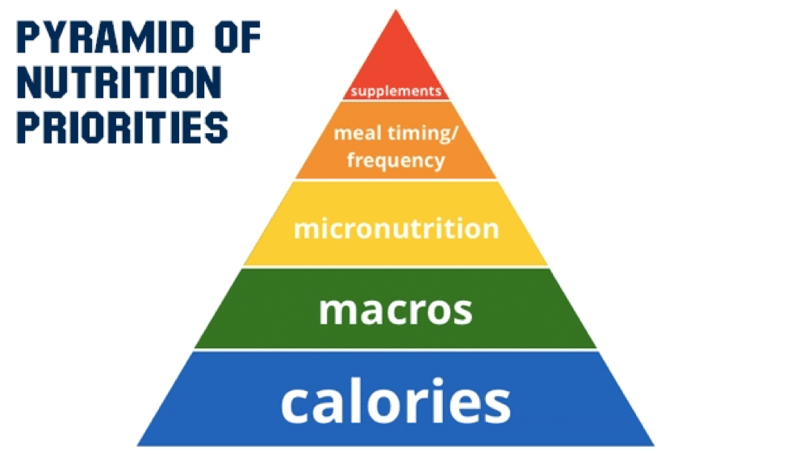
In this article I’ll be talking about the top 3 sections of the pyramid of nutritional priorities, namely micronutrients, meal timing and frequency, and lastly supplements. Looking at the pyramid you can be forgiven for thinking that these 3 aren’t that important, but in my opinion this is a mistake. Micronutrients are HUGELY important for performance, health and quality of life. Micronutrients will help physical and mental health, and support digestion and assimilation of calories and macronutrients.
Without micronutrients which you will get from eating a diet comprised at least 80-90% of whole natural foods you will get nowhere, and for that reason I’d like you to consider micros just as important as macros.
MICRONUTRIENTS
Micronutrients are the nutrients contained in foods that we need in trace amounts, milligrams or even smaller. They are typically thought of as vitamins and minerals, but they also include phytonutrients and other health-promoting compounds found mostly in plants.
Without adequate micronutrients in your diet, your health will suffer greatly on a systemic level. You will feel lethargic, tired or unwell, your digestion will suffer, sex drive will take a dip, and body composition could take a knock – not to mention boot camp performance and recovery!
The RDA of most vitamins and minerals is set for sedentary people, but you (as boot camp enthusiasts) aren’t sedentary, you’re hard training athletes! As a result your needs for micronutrients are even higher. To ensure micronutrient intake is in line, I will re-stress the importance of consuming adequate carbohydrates, and forming the majority of this intake from whole and unprocessed foods.
Consuming 7-11 portions of fruits and vegetables per day, so 2-3 per meal, should be at the forefront of your mind at all times. Vary these often and experiment with different things. The colour of fruits/veg is a great way to determine what nutrients they contain, so look to make your meals vibrant and colourful as possible.
On top of this, consuming offal such as liver or kidney is a fantastic way to get an enormous hit of micro nutrition. Lamb’s liver, for example, has been referred to as nature’s multivitamin because of the massive range and dose of ‘good stuff’ it contains, even in a small serving.
Some micros you might want to take special attention to are:
- Iron – Found in red meats, dark green leafy vegetables and tofu
- Magnesium – Found in dark green leafy vegetables, fish, nuts and seeds
- Calcium – Found in dairy and those dark green veggies again
- Iodine – Found in fish and sea vegetables, dairy and eggs
- Zinc – Found in nuts, seeds, dark green leafy vegetables, seafood and especially oysters
Notice a pattern? I like to keep things as simple as possible, because I know that there is a lot of information to take in and assimilate. Basically, 7-11 portions per day, as colourful as possible, with a big influence of kale, spinach, watercress and broccoli to make sure you get everything you need.
MEAL TIMING
Meal timing is a small detail which can have a varying effect depending on the individual. It’s the frequency at which you eat, and the proximity to a training session i.e. boot camp. There are two different aspects to this that I’ll focus on here, namely protein timing and carb/fat timing.
According to the latest data (4,5), the ideal is to consume protein 4-5 times per day around 4-5 hours apart, including at most 2 hours before training and 2 hours after. For example:
- 8am – Breakfast
- 12:30 – Lunch
- 4:30 – Afternoon pre workout snack
- 6pm – Boot Camp
- 8pm – Dinner
As for carb and fat timing, you really need to experiment here. Some people function and feel better on a higher carb intake, whilst some people feel better with fats. Test your own performance with different pre-workout setups. Try both and see what happens to your energy levels. Check out the article about optimal nutrition for energy as well as what to eat before, after and during bootcamp for more detail on this.
AND THE FINAL PIECE OF THE PUZZLE, SUPPLEMENTS
Supplements, as the name suggests, exist to supplement your dietary intake to improve your overall diet. They don’t really DO much of anything on their own, and a lot of them are a waste of money and even potentially harmful, but there are a few gems which should be mentioned.
These gems are supplements which plug holes in your diet. They give you nutrients which aren’t found in the foods you consume, for whatever reason; for example, vitamin B12 is lacking in vegan diets, and fish oil is a good supplement for those who don’t like or can’t afford fish.
Supplements are discussed at great length in this article, but for now suffice it to say that most supplements are at the top of the hierarchy because they make the least difference to your results, wellbeing and performance, so should be at most an afterthought (with the exception of fish oil and vitamin D).
Stick to nailing the first few layers of the pyramid and the chances are the supplements you do take will be limited to just the essentials that people are commonly deficient in.
FINAL THOUGHTS
Nutrition isn’t just numbers and something to give you abs, it is the fundamental foundations of a healthy lifestyle which will make your entire body work more efficiently and optimally. Nutrition isn’t just about getting lean or running faster, it’s about your health, and because of that we really need to get it right.
Also, as mentioned above, nutrition needs to be viewed as foods first, and numbers second. This isn’t a bunch of protein, carbs, fats, fibre and micronutrients, it is a meal and it does things to our body that can’t be completely understood just yet. Sure, you can get all of your numerical needs by eating junk food, protein powder and a multivitamin, but nobody really thinks that’s a good idea, right.
Do I think the numbers matter? YES. But they aren’t the be all and end all.
I think Michael Pollan summed it up best in his brilliant book, ‘In defence of food’. When trying to get your nutrition on point, your first port of call should be this, "eat food, not too much, mostly plants".
HOW TO EAT HEALTHILY
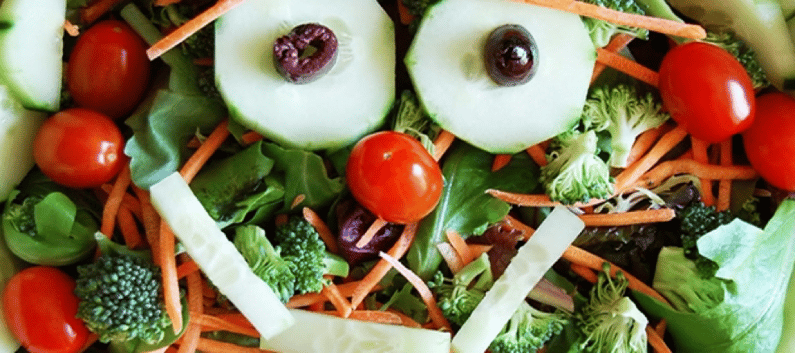
It’s a widely accepted fact that whilst exercise/training are fantastic additions to a healthy lifestyle, the main thing we need to do in order to optimise our health and wellbeing is eat a nutritious diet.
You’ve probably tried to improve your nutrition since starting boot camp, and that’s awesome, but I’d wager that most people could still use some guidance; after all, there is a ton of conflicting information available which isn’t always easy to whittle down into straight forward, truthful and practically applicable advice.
This article should be the first port of call for someone who wants to feel better, sleep better and start to see dramatically improved results from their exercise regime. First, I need to define ‘health’ as this will form the basis of a lot of the information I’m going to explain.
Health is defined as ‘’A complete state of mental, social and physical wellbeing, not just the absence of ailment’’ (1). This is an important point to make, as I think that people tend to either think that they are healthy because they either aren’t overweight or ‘feel alright’, despite underlying deficiencies or other bad goings on. Or they assume that because they are in great shape they are completely healthy, in the face of poor mental or social wellbeing.
Below I will list 5 tips that you can action very easily to help improve your diet by getting the most nutrition out of every calorie you eat. How quickly you action them is up to you, but my advice will always be to start small and build up slowly. If you are just starting out it is imperative that you slowly build habits which you can keep for life, rather than shooting for THE BEST DIET, NOW, because it’s very difficult to maintain a dramatic life change for very long, and in nutrition it’s the long game which truly dictates your results.
There’s no rush, no pressure, no worries. Take it slow and get it right first time!
SO, ON TO TIPS!
AIM TO EAT SINGLE INGREDIENT FOODS, ALMOST ALL OF THE TIME.
Whilst I’ve said single ingredient foods, what I mean are basic things that can be considered to be an ingredient in a meal. This means meat, fish, nuts, seeds, potatoes, rice, dairy, wholegrain pastas or breads, fruits, vegetables and things like whey protein. These basic things are what will give your diet the solid foundation it needs.
By opting for whole foods for the majority of your nutrition, you will cover one important base much more easily, MICRONUTRIENTS. Micronutrients are vitamins, minerals and other health-promoting things like phytonutrients. Vitamins such as vitamin K, vitamin B12 and vitamin C alongside minerals such as Zinc, Magnesium and Iron are vital for both health and training recovery, and wholefoods are going to be your best source every single time.
This one is simple to action. Try to make the VAST majority of your food choices something you could buy at a farmers market, or something you could (theoretically) find yourself in nature. Sure, some things like breads, whey protein and dairy would be difficult to find in a field, but you get my point. Basic foods do powerful things, Pot Noodles don’t. By taking the simple step to move to a mostly whole-food diet, you will likely drop fat, improve your health, and be able to train harder whilst recovering faster, without counting a single calorie or gram of anything!
HAVE AT LEAST 2-3 PORTIONS OF FRUIT OR VEGETABLES WITH EVERY MEAL
This should total around 7-11 portions throughout the day, and try to get some different colours in there. Plant matter should be easily the largest portion of your plate every time you eat (by food volume, probably not by calorie). I always see people eating a small handful of spinach, or 2-3 florets of broccoli, but that’s rubbish – get it in! A salad doesn’t have to be boring, fill it with pickles, tomatoes, cucumber, artichoke hearts, olives, avocados, nuts, raw broccoli and cauliflower, carrots, baby corn and any other colourful crunchy stuff you can lay your hands on. Learn different cooking methods for other veggies like roasting sprouts with oil and garlic, or turning squash into chips and make it enjoyable. Eating a load of vegetables will give you the greatest range of vitamins and minerals and of any food available.
More than this, though, a diet rich in plant matter provides a large amount of plant-based fibre. While I know fibre isn’t the most exciting subject, it actually has profound effects on your health and body composition.
Most importantly for dieters, fibre promotes satiety in the short and long term. One of the main signals for fullness during a meal is the physical fullness of your stomach, which is achieved through consuming foods which pack a lot of bulk. Fibre-rich vegetables give you the most physical volume per calorie of any food, and that fibre slows gastric emptying (how fast food leaves your stomach) so that food will stay in your digestive system for a long time. You get fuller on fewer calories and stay fuller for longer, which is a huge benefit seeing as the main reason most people give for struggling on a diet is hunger.
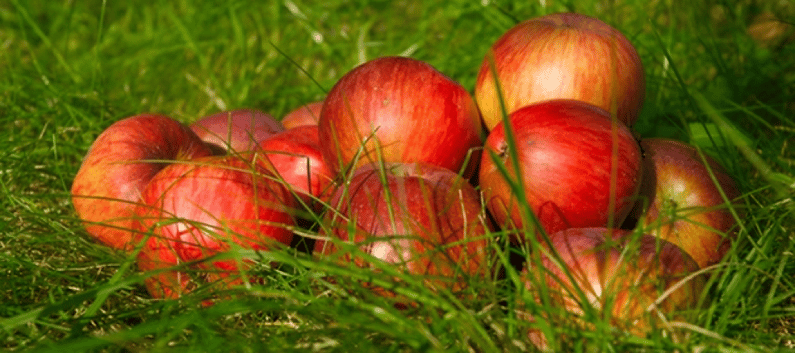
EAT PROTEIN AT EVERY SITTING
Protein is simultaneously the single most important and single most ignored macronutrient out there. While there are always differences of opinion and arguments about nutrition from various authorities, the one thing that just about everyone agrees on is that the average person should probably be eating more protein.
Protein not only helps to build and repair muscle, it’s beneficial for feeling full, it’s needed for producing hormones and controlling cellular function, it’s needed for good skin quality and hair health, and it’s fantastic for fat loss as we burn a lot of calories simply by digesting it! This is known as TEF or the Thermic Effect of Food, called so because the energy is lost as heat.
You need about 2g of protein per kilogram of bodyweight to support your boot camp training effectively. The actual recommended number is 2.3-3.1grams per kilo of lean body mass (2), which is quite a lot by typical public standards, but the best way to actually ensure you are getting what you need is to simply make sure that you build every meal you eat around a complete protein source.
Work out how much protein you need (it’s usually somewhere between 120-200g per day), think about how many meals per day you have, and do some simple division. After that all you need to do is check some food labels when you do your weekly shop.
Say you weigh 70kg, that’s 140g protein per day meaning if you eat 4x you need about 35g protein per meal. That could look something like:
- Breakfast – 2 small high protein yoghurts (giving 12g each), with some nuts and seeds (5g) (Total 29g)
- Lunch – 150g shredded cooked chicken thigh (41g) and salad with 50g feta cheese (7g) (Total 48g)
- Mid-afternoon Snack – 40g Biltong (18g)
- Dinner - 180g (45g) Rump Steak
**Note I only listed protein sources here, this is NOT a meal plan**
Do this consistently and good things will start to happen.
EAT A MACRONUTRIENT DIET
Macronutrients are a collective term for protein, carbohydrates and fats, and by eating them all in moderate ratios you will be in the best position to get the most out of your food and training.
We need carbohydrates for glycolitically demanding activities, meaning things fuelled by glycogen (the body’s storage of carbohydrates, found in muscle cells and your liver) such as lifting weights, sprinting around a rugby pitch, and boot camps! Sustaining a highly intense training session without carbohydrates is very difficult as anaerobic activity, which is anything lasting under around a minute, is fuelled almost entirely by carbs, meaning you’ll quickly run out of gas if you skip on the rice and bread too much.
Likewise, we require fats for vitamin absorption, hormonal regulation, overall health and even satiety (we also need it to make food taste good, but that’s just my opinion!). A diet that is too low in fat can lead to vitamin insufficiency which causes TONS of health problems, including poor skin, sight problems, depression, bone brittleness and diarrhoea.
Eliminating one of these food groups, admittedly, will probably result in weight loss. It does this not through either of them being inherently fattening, but because when you eliminate 1/3 of all food in the world, it’s difficult to replace the calories unless you try to do it on purpose, which dieters of course don’t do. Eat no carbs or fat and you inevitably eat fewer calories; you will experience a calorie deficit i.e. eating less than you burn, which is the MAIN requirement for fat lost. The lesson you should take from the fact that low carb and low fat followers BOTH get success (4), is that you CAN lose weight and get in great shape whilst still eating the other macronutrient in relatively large amounts, provided your calories are in line!
PRACTICE BALANCE AND MODERATION
What I mean here is that a healthy diet is one which provides you with a good range of, and a proper amount of, the things you need to be healthy, namely protein, carbs, fats, fibre and micronutrients. That doesn’t say that it’s one which EXCLUDES anything. A healthy diet doesn’t exclude pizza, or chips, or sweets, rather a healthy diet emphasizes whole ‘healthy’ foods 80-90 percent of the time.
WHY DO I SAY NOT TO ELIMINATE ANYTHING?
First, moderate and flexible diets have better long-term adherence rates when studied (5). This means that a highly restrictive diet which may appear optimal at face-value, is actually the kind of diet which proves impossible to adhere to for the rest of a person’s life. The reason most people fail diets is not because they are weak, or greedy, or any of those things.
The reason most people fail in their lifestyle change is because they or society set unrealistic goals, rules and restrictions which will eventually cause them to cave in. The diet was set up to fail from day 1.
Whilst this diet will now be 90% awesome rather than ‘technically optimal’, it will be something you can do for the long haul. Fat loss is easy, fat loss maintenance – now that’s an achievement!
Secondly, I will return to my definition of health from earlier, where I mentioned mental and social health. If your diet causes you to miss numerous social occasions then it’s not promoting health. It’s promoting solitude which is a very bad thing for mental health, and quality of life.
Also, a final point here is to mention that any diet which labels foods as ‘good’ or ‘bad’ can carry the rarely problematic, but very serious risk of promoting disordered eating (6). Eating healthily should be a positive thing which makes you feel awesome, look great, live longer and feel better. If your nutritional approach tells you that you aren’t allowed things, which then causes stress if you aren’t able to, or don’t manage to, stick to your rules, then this is a problem.
But whilst there are foods which may be considered optimal or suboptimal, reality dictates that you will want to eat, and should feel no guilt about eating, something from the second category from time to time.
The 90/10 rule dictates that provided you are "bang on" for 90% of the time, the other 10% doesn’t matter all that much. This means that if you eat 4 meals per day, 7 days per week (28 meals), then so long as 24 meals throughout the week are on point, if you eat within your caloric needs but go ‘off piste’ for the other 4 or so, it’s not going to harm your health or results. In fact, long term, you might even be better off!
FINAL THOUGHTS
As I touched on above, healthy eating is a holistic thing which encompasses far more than just weight loss and muscle gain. Healthy eating should enrich your life, so enjoy it!
Find and try new recipes using fresh, wholesome plant-based produce sourced locally wherever possible. Eat a variety of tasty and interesting protein sources, don’t cut out any foods or macronutrients, and above all don’t stress it too much.
If you cover the basics, the rest will all fall into place.
Nutritional advice for the vegan or vegetarian boot camper

Most nutritional advice available today is aimed at those on a diet which contains animal products, but an increasing number of people are adopting a more plant-based diet which may or may not contain dairy, fish, eggs and honey. While those who choose this approach are able to make just as much progress as anyone else who undertakes a new fitness regime, there are a few steps which must be taken to ensure you are still getting everything your body needs to be healthy and perform at its best.
**The bulk of this article will be aimed at vegan athletes as they have far more things to bear in mind when it comes to their nutrition, but I would urge vegetarians to still read through as a lot of the information will still be relevant. Vegetarian athletes should eat in the exact same way as those on a meat-based diet, only they should focus the bulk of their meals around vegetarian protein sources such as dairy (low fat if calorie needs dictate it), eggs, fish and seafood (if eaten) and whey/casein protein powders, alongside vegan sources I will mention below.**
The main things that vegan athletes need to bear in mind as they are often deficient in these are protein, vitamin B12, calcium, zinc and Omega-3 fats, and I’ll address each in turn.
Before I do though, I’ll direct you to my article, Nutrition Advice for Beginners, because regardless of your dietary preferences it is important that you first establish the basics towards better health. Fruits, vegetables, wholegrains, nuts and seeds should make up the vast majority of your intake because these are the foods which will provide you with the widest possible spectrum of nutrients.
Another thing to talk about here is calories. While the average person needs no help getting enough food, the switch to veganism can restrict your food choices so much that you might find it difficult to meet the demands of a highly intense boot camp session. The most important thing you need to bear in mind is that typical raw vegan foods like green salads, fruit and most vegetables are incredibly low calorie and you will likely need more than this. Vegan sources of fat like nuts, seeds, avocados, coconuts and chocolate need to become your friends along with not skipping out on the carbs.
Protein is key
The first nutrient I’ll cover will be protein as this is the main thing most vegans struggle with when they are looking to improve their health and their nutrition. Before I throw out some food suggestions, I think it’s important that we discuss what exactly protein is and how we use it in our body.
Protein is the term used to group together 20 different molecules called amino acids, of which 9 are considered essential. This means that we must ingest them through our food as we cannot synthesise them from anything else. When you eat a protein source, it is broken down through your digestive system into it’s constituent amino acids to be used for various jobs around the body, no least of all muscle repair and hormonal production.
These amino acids are present in all foods in different ratios, some have a better ratio than others when it comes to being ideal for use by human beings. A protein source is considered to be ‘a complete protein’ if it contains these essential amino acids in the correct ratios as this would give your body everything it needs. Complete proteins with a few exceptions are animal based products or dairy, which poses a problem.
There is a way around this, though, which is known as protein combining. Protein combining is the practice of pairing two or more ‘incomplete’ proteins which have complimentary amino acid ratios to create a meal which has a complete protein and amino acid profile. This chart courtesy of www.govitarobina.com is a fantastic and easy resource to show you what needs to be combined with what and why.
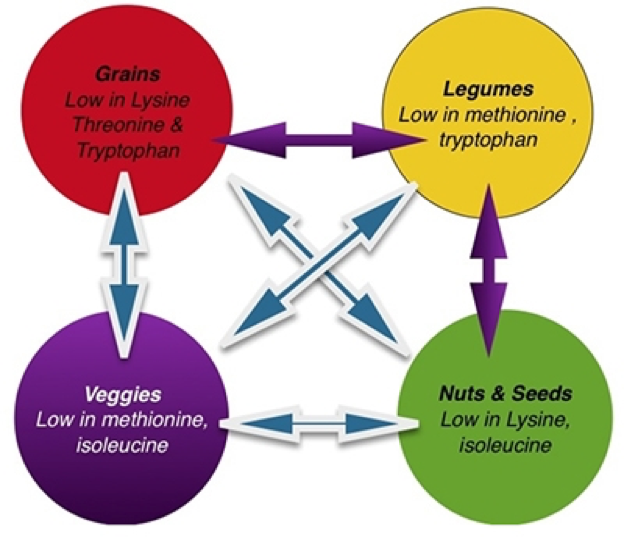
Each amino acid has a very different role to play, and they are used independently of each other. This means that you don’t actually need to combine all of these proteins within the same meal. So long as, over the course of a day, you are eating a wide variety of vegan protein sources and you are still getting somewhere around the 2g of protein per kilogram of bodyweight, you don’t actually need to worry too much about protein.
Typical vegan sources of protein are:
- Beans, lentils, split peas
- Wholegrains
- Nuts
- Tofu/Tempeh
- Pseudo-Grains like Wild rice and quinoa (quinoa is considered a complete protein all by itself)
- Meat substitutes like Quorn which are complete proteins and also a fantastic fibre source, although I recommend checking the label. Most of the range is OK, but some products contain free range egg white which vegans may wish to avoid.
- Soy milk which is complete.
- Vegan protein powders made of soy, pea, wheat and brown rice which are again complete proteins on their own.
And this is by no means an extensive list, so keep your eyes open and experiment with different foods. With a little planning ahead (I recommend you check out Nutrition Part 2 for information about how to track your food more accurately) you should have no problem getting just as much protein into your daily intake as meat eating athletes.
Zinc and calcium
Both of these are typically found in fish, seafood and dairy, but these may be off the menu for you so you need to look for alternatives. The common belief is that zinc and calcium are both available in various green vegetables, and this is true. The problem is that plant-based sources of these essential minerals carry a very low bioavailabilty meaning that you may be EATING enough, but it’s likely that you aren’t able to absorb around 50% of it, so you will need approximately double the RDA of calcium to just cover your bases.
For calcium, I advise that you start to include foods such as tofu on a regular basis, and rice and soy milks which are fortified can be lifesavers. Provided you are keeping these things as one of your staples you should be set, but for those who don’t want to or don’t like these foods, a high quality supplement is a great idea that won’t break the bank.
Likewise for zinc where the plant bioavailability is also poor, you could be looking at needing 150% of the RDA. To illustrate, that’s around 16.5mg. There is 1mg of zinc in:
- 1 tablespoon of nuts, seeds or nut/seed butters
- ¼ to ½ cup cooked beans
- 1 tablespoon wheat germ
- 1 cup cooked grain
- 2 slices of bread
- 2 cups cooked leafy green vegetables
So as you can see, your needs will be quite difficult to fit in to a diet with a low calorie load, such as one aimed towards fat loss. Zinc is another mineral I would personally consider supplementing on a vegan diet.
Good quality omega-3 oil
EPA and DHA are two fats grouped into the umbrella of Omega-3 fats, and they are vital for human health, but they are quite hard to come across in a diet, especially one which cuts out the single most important dietary source – fish.
The typical supplement which people take to cover Omega-3 needs is Fish oil, but there are a number of vegan options available. By far the most effective one can be found here, which is available for around £17. Three of these capsules will get you well into the 2-3 gram range of EPA and DHA which is suggested for optimal health.
Finally, vitamin B12
The final supplement I would suggest is vitamin B12 which is found almost exclusively in animal products, because it’s source is bacteria found in soil. If you clean your vegetables of dirt, you are likely not getting any vitamin B12 which can lead to a host of health complications.
By supplementing calcium (or increasing your intake of tofu and fortified vegan milks), zinc, Omega-3 and Vitamin B12, then taking care of your protein needs by simply being mindful and eating a varied diet, there is no reason at all that a vegan boot camp athlete can’t reach any goal that they have!
Training tips for those with diabetes

When it comes to genetic and lifestyle related conditions, there are always steps you can take to improve the situation, the severity of symptoms, and how you feel day to day. And living with diabetes is no different. When living with any condition it is important to do what is within your power to alleviate any potential issues and manage the symptoms as effectively as possible. This is a key reason the government and other information bodies continually push for people to improve their lifestyle, to improve daily living, the risk of disease onset and lifestyle related conditions.
Ensuring you exercise will mean that your body effectively utilises carbohydrates in the diet and overall glucose metabolism, as well as improve your strength, energy, and stamina. Eating well with a balance of all 3 macronutrients (carbohydrates, protein and fat) will ensure you can effectively maintain good blood glucose balance and manage your insulin effectively, while also providing for your health on many levels. Staying hydrated will again ensure your body is working in optimal balance. Taking the steps you can to improve your diet, lifestyle and overall health will always have a positive impact on diabetes management, leaving you living a happier and healthier life.
Top tips for those with diabetes:
- Getting 7-9 hours of quality sleep a night
- Drinking a minimum of 2 litres of water each day
- Ensuring you eat protein and vegetables at all key meals
- Eating with balance, variety and lots of colour
- Exercising in way that is sustainable and enjoyable
- Challenging yourself, but always managing your stress levels effectively
- Consulting your GP or dietician when managing your diabetes and any dietary changes
What food and drink should I avoid?
As someone who is looking to optimise your body composition, boot camp performance, recovery, health and energy levels, it’s natural that you want to get to the bottom of it all and find out, once and for all, what foods you should be waving off into the distance. Thus in this article I’m going to tell you and explain why.
But, as usual it isn’t quite as simple as people make out. In fact, at the most basic level the real answer is: none - there are no foods which universally should be avoided completely.
‘The only thing to avoid in nutrition, is food avoidance’. Here’s why
One of the laws of human nature is that you will want something the most when you are told you can’t have it. Your willpower is a finite resource, which means that you’re eventually going to cave in and when you do you are going to go WAY overboard because this might be the last time, or at least it might feel like that. You’re going to ‘get it out of your system’ and have ALL of the chocolate because from tomorrow, you’re back on it and chocolate is back on the naughty list.
Those who eat an incredibly restrictive diet which gives specific ‘good’ or ‘bad’ foods inevitably fall into the trap of adopting an ‘all or nothing’ mind-set. What I mean by this is that they will be 100% adherent to their own set of rules until they slip up at which point their diet is ruined and they might as well eat an entire Toblerone then order a pizza, ready to start again tomorrow, or on Monday.
This cycle of ‘cheating’ or, more accurately binging, is unhealthy from a physical standpoint as your body is not really designed to eat whole 18’’ pizzas followed by dessert, but it can also ruin your progress. It’s popular dogma to say that you can’t get fat in one meal, but unfortunately you can.
When researched, it’s very clear that having a flexible approach to your diet that allows for a few foods and meals that don’t follow typical ‘healthy’ eating patterns gives SIGNIFICANTLY better results in the long run than those diets which look, on paper, to be superior. The flexible approach allows you to stick to it, and it’s sticking to it that gets you where you want to be.
Balance is key
Surely, I’m not saying you can just eat what you like provided calorie balance is right? When it comes to choosing foods, I advocate that you don’t completely eliminate ANY food unless you have a specific negative reaction to it. Most people can eat whatever they like within certain guidelines that I’ll put below, but some people react poorly to wheat, gluten, dairy, nuts or any number of other things. These people should also check out this article about gut health to properly handle your symptoms.
Rather than elimination of some foods, I advocate emphasis on whole, unprocessed, natural and fresh foods. Every time we eat we need to be trying to maximise the nutritious load that we are taking in and that means fresh fruit and vegetables, good quality whole protein sources, fibre-rich carbohydrates and a moderate amount of natural fats should be the backbone of every meal.
Your plate should be vibrant, as the colour of vegetables and fruits indicates some of the nutrients therein and we want to make sure we are hitting the full spectrum. What this does is that it doesn’t actually leave you much ‘room’ to include other foods, as your total daily calorie need is pretty much used up by eating enough awesome, healthful, natural foods.
But this is an emphasis on those 'healthy' foods, not total eradication of everything else.
Fat gain and loss is based around calorie balance, meaning you need a certain amount of calories to maintain your weight, and by going over or under this you will gain or lose. If you stay 500 calories under your maintenance requirement you’ll lose somewhere in the region of 1lbs of fat over the course of a week (It’s not accurate, but it’s somewhere near there). Check out that article and this one about nutrition for beginners to get a little background on the rules which you need to follow for optimal health and improvements in both body composition and energy.
Low moderation
I follow the philosophy that food works on an 90/10 rule. This rule dictates that provided you adhere to your approach at least 90 percent of the time, the other 10 percent won’t make all that much difference to your results. It’s this 10 percent, which will often boarder closer to 20 percent tops, that I want to talk about here.
Provided you account for it in your total calorie need, pretty much all food can be eaten in low moderation. Moderation is not a sexy word, but it’s one which can make your nutrition – and life – a whole lot more fun. What do I mean by low moderation?
There is typically two schools of thought in the fitness industry which are popular at the moment. They are the ‘clean eating’ guys who believe that some foods can and cannot be eaten, period. Then you have the people who say it’s all calories in vs calories out and so long as you get enough protein you can eat whatever you want. I like to sit in the middle as I believe that both of them are missing something.
The clean eaters are kind of right. It will be more beneficial for your body, optimally, to eat a 100% wholefood diet all the time. Everything single ingredient, locally sourced, organic, unprocessed and fresh. The problem is that this is unrealistic – it’s expensive for a start, but more than this it restricts social gatherings and some of life’s simple pleasures, making it unsustainable in the long run.
The other guys are kind of right, too. At the most basic level, energy balance and protein intake will more or less determine your physical results (3). You’ll get leaner and stronger eating a diet of protein powder and cake if you calories are in check because these foods don’t really have different hormonal responses (4) or affect your body differently than whole foods do. These guys do, however, miss the side of nutrition that takes care of health and longevity – whole foods are micronutrient (vitamin and mineral) powerhouses that will keep you healthier and allow your body to function optimally, so we need them.
Where I sit is this: most of your meals should be whole foods, in fact almost all of them should. After that, if you want to include sugar, oils or alcohol into your intake, you should feel free to do so. Use a little oil to cook meals, have a dessert or a beer once or twice per week, just don’t make it a large amount on a daily basis.
Sugar isn’t inherently bad for you, it’s just calorie dense without being filling and really tasty. These two things make it really easy to overeat sugar, thus overeating calories, and this makes it really easy to gain unwanted fat. It doesn’t even provide us with any essential nutrients to account for the calorie load, so making it only a small part of your diet ensures you get to enjoy it without the drawbacks.
Oils are often given the green light by health enthusiasts because they hold many health benefits. This is awesome, but the benefits come from the fats in the oils rather than the oils themselves, and these fats are present in whole foods. The two most popular oils are olive and coconut. Olive oil contains fats found in nuts, seeds, olives, avocadoes and some fish, whilst coconut oil contains fats found in, well, coconut. The oil forms give health benefits, but you need to account for the fact that, like sugar, oils don’t fill you up that much but are incredibly calorie dense. A simple tablespoon of oil contains as many calories as a scoop of ice cream! Using oils is great, as they make food taste infinitely better, and as mentioned they DO have health benefits, but I would personally recommend you use them in a moderate fashion, and always use measuring spoons rather than ‘glugs’ when using oil for dressings etc.
Alcohol is the final one which is typically demonised, but this is largely unwarranted. Small amounts of alcohol (1-2 glasses of wine or beer for example) do nothing harmful to your body, won’t affect your boot camp performance at all, and don’t contain as many calories as people think they do (5). The problem arises when you drink with the intention of getting drunk on a regular basis, as when you are drunk you lose inhibitions about everything, including the local kebab shop menu. Then when you are hungover you are unable to train and just want bad food all the time as your energy is in the floor and your cravings are sky high. The message here is to have a glass of wine or two once or twice per week – enjoy them and don’t feel guilty at all...but it might not be the best idea to start doing shots of spirits every week.
Final thoughts
As I said above, this is not me giving free reign to eat whatever you want – far from it. My recommendations will always be to eat whole, natural foods as often as you reasonably can because it is these foods which will nourish your body, give you energy, and make you look good, naked.
I’m also a realist, though, and I want people to enjoy their life. Going for less than optimal foods every now and then won’t actually harm your goals and can, in fact, make your end results better.
Bon appétit!
WHAT SUPPLEMENTS SHOULD I BE TAKING?
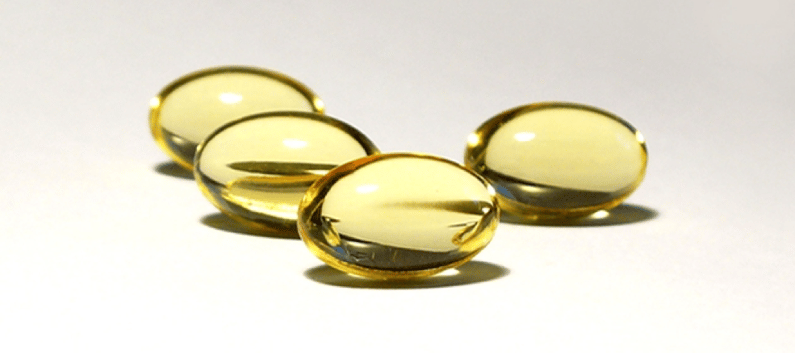
Typically there are two schools of thought when it comes to supplements. One camp will tell you that you need everything from protein and carb powders to testosterone boosters, fat burners, glucose disposal agents (which promise to ‘shuttle carbs to muscles’) and 350mg caffeine pre workouts. Conversely there is another camp which will adamantly espouse the idea that you don’t need any supplements at all.
As usual, the REAL answer lies somewhere in the middle. Whilst it’s technically true that you don’t NEED any supplements and the vast majority of goals can be met with dietary and lifestyle changes along with simply training smarter, that doesn’t always reflect what is actually practical.
There are no supplements available today which will dramatically improve your performance, your body composition or your overall health, but supplements can help, just please ensure you view them as an added extra, the cream on the top, after all diet, lifestyle and exercise optimisation comes first. But when you are ready to check out using supplements, check out: http://awesomesupplements.co.uk.
WHAT SUPPLEMENTS ARE RIGHT FOR YOU?
Once your nutrition is in place, meaning you have gone through a process of trial and error to find what best suits your preferences, lifestyle, budget and energy levels, and you have been consistently sticking to a plan which meets the criteria you set out, there may STILL be holes which need to be plugged – so to speak.
Below I will list the supplements that are most beneficial to most people, and give instances which they may be useful to you in your quest for boot camp awesomeness and looking great naked.
1. WHEY PROTEIN
Whey protein almost didn't make the list as I consider it to be a food source. It doesn't give any benefits over that which a chicken breast or rasher of bacon would (TECHNICALLY they absorb a little faster, which is given as a benefit by those who support it’s use, but this is "majoring in the minors" and I wouldn’t worry too much about it), but there is one huge benefit to whey that wholefoods don’t always have; convenience. Whey protein is, protein gram for protein gram, cheaper than any other protein source available, you don't have to cook it, and it never goes off.
A boot camp goer should be consuming around 2g of protein per kilogram of body weight, and be eating protein with every meal. If you struggle to do this every single day, a good quality whey protein powder such as Awesome Whey Protein or Awesome Vegan Protein could be an excellent addition to your dietary intake to make sure you hit those protein requirements.
2. Fish Oil
EPA and DHA are two fatty acids without which your body cannot function. By consuming adequate amounts, you reduce inflammation, improve insulin sensitivity, increase cognitive function, speed up muscle protein synthesis and a HUGE list of other benefits to boot. The vast majority of people would do well to get around 2-3 grams of the two combined every single day. This would work out at around 250g of wild salmon daily, or 3-5 capsules of a quality fish oil. And while I love salmon as much as the next guy, budget and convenience will win for many people when it comes to fish.
To choose your fish oil, check the back of the tub for the nutrition information and look to get one which provides around 600-700mg of the two above acids per capsule. Cheaper products will have these in a far inferior ratio and you could find yourself eating 10-12 capsules just to get a daily dose. Fish oil is part of the Awesome Supplements range, but part of our all in one health product Daily Dose: http://awesomesupplements.co.uk/products/daily-dose/.
3. Magnesium
Magnesium is a mineral that is depleted during intense exercise, so athletes require far more than the average sedentary person (if you are reading this as a BMF boot camp attendee, you are an athlete. Athletes are people who regularly undergo training towards a specific goal – that’s you!). Magnesium has a ton of benefits including testosterone regulation, sleep improvement, depression prevention, recovery from training and even abdominal fat loss - it is found in a huge variety of foods such as dark leafy greens, nuts, seeds, fish, yoghurt and even chocolate.
Unfortunately though, like I mentioned above, athletes require more magnesium than most folks, and an oral or transdermal supplement is a cheap and convenient method of covering your bases. Awesome Supplements does oral magnesium, but again its all wrapped up in the Daily Dose product, which is becoming a winning supplement if its covering all this: http://awesomesupplements.co.uk/products/daily-dose/.
I mention Transdermal magnesium because magnesium when supplemented orally has a less than perfect absorption availability (it depends on the type you use), meaning that you don’t actually get as big a dose as you think you do. Awesome Supplements Recovery Spray is a convenient method of directly delivering magnesium to the freshly depleted muscle you have just trained, and works as an effective top up. Try transdermal magnesium, I think you’ll be impressed with the results, which are typically reduced DOMS and improved rates of recovery and well-being. Try it: https://store.awesomesupplements.co.uk/products/recovery-spray.
4. VITAMIN D
This is the big one. You know how you just feel better during the summer? More energy on holiday? And you even feel energised after using a tanning bed? That’s the magic of vitamin D3.
Vitamin D3 is a powerful secosteroid with almost innumerable benefits to athletes, including hormone production, increased mood and focus, improved strength gains and body composition. While it is technically possible to get it through dietary and lifestyle management, the main source is the sun and unless you live in a more tropical climate, it is almost guaranteed that you will be deficient for some part of the year.
I recommend a dose of around 2,500iu per day at least during the darker months, or year round for those who don't get outside much. This moderate dose seems to give the maximum results without breaking the bank or having any deleterious side effects.
All of the above four nutrients can be bought individually, but if you want something well dosed and convenient – Awesome Daily Dose is the only product on the market that provides all you need, in the doses you need, at a reduced cost compared to buying all those supplements on their own at the doses that are optimal.
5. Creatine
Creatine is a protein, meaning it’s made of amino acids (long chains of molecules that from the basis of living things). It’s found in meats and fish in small amounts, but can be supplemented in far higher doses than one would realistically ever get through your diet, which can have huge benefits to the athlete, as well as to those just looking to be healthy.
Creatine is absorbed and stored in muscle cells as Creatine Phosphate which also carries molecules of water with it. This gives the benefit of muscular hydration and ‘fullness’ which makes you look better (don’t worry, the water doesn’t go under your skin and make you look bloated), helps prevent cramps and actually makes your muscles respond better to nutrients!
If you’d like to try creatine, a dose of 3-5g per day, every day is what you need to get the benefits. Awesome Performance Blend
provides this, alongside the lactate buffer Beta Alanine (mentioned below) in a great-tasting drink, which is actually a perfect supplement for a bootcamper as the exercise you do is enhanced by taking both of these compounds, after all, improved strength and a reduction in the burn anyone?
6. Caffeine
Caffeine is the world’s most used drug, and can be massively beneficial to both performance and fat loss. Research suggests that caffeine can improve power output, reduce perceived effort with a given workload and increase alertness, drive and focus. This means you are in the zone, able to train harder, and you’ll even feel like it’s easier.
Couple this with the fact that habitual coffee drinkers show an increased calorie burn throughout the day and I can imagine you are sold!
A dose of around 2-4 milligrams per kilogram of bodyweight is shown to be highly effective at aiding sports performance, so this is a good place to start. Nut there is a drawback as caffeine isn’t all roses. Caffeine increases your stress hormone levels, can interfere with blood pressure and heart rate and can interrupt the sleep, which is vital for both health and brainpower as well as fat loss and muscular performance. It also has a long half life of over 6 hours (Meaning that if you took 200mg at 12pm, come 6pm there would still be 100mg in your system, then come 12am there would be 50mg, and so on) so it’s deleterious effects hang around for a long time.
My suggestions with caffeine are and always will be to use it, but use the minimal effective dose as infrequently as you can. A single coffee in the morning and a dose of Awesome Caffeine Tabs is all most people will benefit from, and should ideally be the limit of your intake, always dosing for need and performance, not just want and habit as our sensitivity can reduce over time, we don’t want this, we want to stay sensitive to caffeine as much as possible so it actually works when we take it. Performance spray is a caffeine based spray which absorbs through your skin and delivers a very low dose directly into your blood stream. This means that you get a big initial hit as it peaks in your blood (compared to regular oral caffeine which is drip fed into your system slowly via digestion), but with a fast clearance time which negates a lot of the negative effects.
7. LACTATE BUFFERS
When you train, you create a build up of lactate and hydrogen ions which have a positive charge, these are what gives the acidic ‘burn’ you feel when you do a bunch of reps, and if it builds up too much can make you feel a bit nauseas.
Lactate buffers effectively hold off this process that allows you to maintain your training intensity for a much longer period, therefore getting more quality work done.
Lactate buffers cover a wide range of compounds, but the ones with the most research backing are Beta Alanine and Citrulline Malate. They will make a small difference to your results but may make your training sessions a little more bearable whilst doing the same amount of work. Only recommended for those who can easily afford them, but definitely worth a mention.
FINAL THOUGHTS
As I said in the beginning, you don’t NEED any supplements and by simply following the nutrition advice found on this resource hub, including Nutrition Part 1, Nutrition Part 2 and Nutrition Part 3, as well as attending boot camp regularly, you should be able to reach any goals you have. But with that said, know that supplements aren’t all there to rip you off, and some of them can in fact be a good idea.
For further information on any supplements available, or on the list above, I urge you to visit www.examine.com for comprehensive and independent write ups backed by research data.
GUT HEALTH – THE MISSING LINK
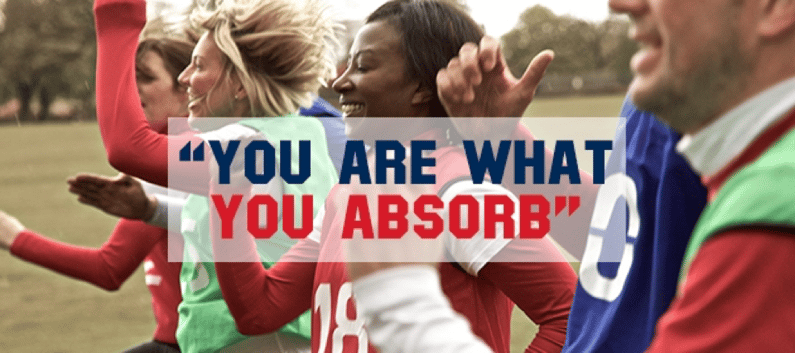
When focusing our attention on optimal health, we cannot ignore the importance of the gut. Everything that we eat goes into our gut, where it gets broken down and absorbed. There is a common saying “you are what you eat”, but really “we are only what we absorb”.
If you get bloated, have irregular stools, or other physical symptoms that you cannot fathom why you have them, your gut function and the foods you eat could be a key issue to try and unravel. The gut is the gateway into the rest of the body, if this isn’t working properly, or is having to deal with foods that aggravate it, we cannot expect optimal function as the body will be fighting inflammation whenever the offending foods are consumed.
When this environment exists we leave the door wide open for issues. When the body is having to deal with food that aggravates it, this causes inflammation which will not only stay in the gut but radiate into other areas of the body.
It’s not just one factor; it can affect the body in a plethora of ways. So dealing with gut health, even when you don’t think there is a problem, could be one of the most valuable steps you make with your health.
SO, HOW DO YOU KNOW IF YOU HAVE PROBLEMS WITH YOUR GUT?
It could literally be anything: bloating, fatigue, lack of concentration, itching, clammy throat, regular ENT issues, eczema, psoriasis, joint paint, arthritis, osteoarthritis, irregular stools or unusual consistency, migraines, water retention, low energy, low feeling of vitality, lack of physical performance, and auto-immune issues, along with other less common symptoms.
If you know the gut is something you need to look at, the first port of call is for us to try work out what the offending foods are. The most common foods, in an order of commonality that aggravate the gut and cause issues are:
- Wheat Gluten
- Gluten
- Cows Dairy
- Sheep’s / Goats Dairy
- Eggs
- Soy
- Nuts
- Onions
- Peppers
- Tomatoes
- Potatoes
There are of course more, anyone can be intolerant, have a sensitivity, or an allergy to anything. There are no rules as to what someone has an issue with, these are just the foods we know to commonly be an issue, with gluten and dairy being the two most common food sources. It’s one reason ‘free from’ foods are so popular in the supermarkets now, many people are realising that they have food intolerances or issues and need to find alternative food sources so they can have as normal a diet as possible.
The easiest way to assess if one of these food sources is an issue with you is to keep a food diary. Write down what you eat, then 2-3 hours later write down how you feel. Once you feel confident a certain food group, or food, is the cause of the issues, you can look to remove this food from your diet and find alternatives. This could be with direct replacement foods (be careful that these are not just nutrient devoid replacement foods like many ‘free from’ foods are, whole foods like potatoes and oats are always best to replace bread for example) or with different foods, thus changing what you would usually eat at a particular meal.
While removing foods and changing your diet can be tough, and feel like an annoyance stopping you from eating foods that you usually regularly enjoy, this will be an essential step in health optimization and will likely lead to you eating foods with greater nutrient value anyway.
Often food intolerances and sensitivities can be ‘fixed’ or alleviated via improving gut function, and thus the immune systems reaction to these foods. This is done via supplements like probiotics. But it is advisable that once you identify this issue, you work with someone that is knowledgeable and can coach you through this process so that you can assess when the ‘damage’ might be fixed, what supplements to take and where from, and how to re-introduce those foods. Exclusion diets can safely be performed yourself through trial and error, but to rectify the issue long term it would be advisable to work with a qualified practitioner.
WHAT SHOULD YOU DO NOW?
Most people don’t have gut issues, but a minority do so if you think you are affected start to take a food diary, start to assess how your health changes with what you eat, and in what way. Identify the foods, or food groups you think are the culprit and remove them from your diet, and see how your symptoms change as a result. If symptoms persist or are severe, approach your GP and ask to see a gastroenterologist – there may be something more serious going on, or work with a practitioner that can look at your diet and work with excluding problem foods with you.

